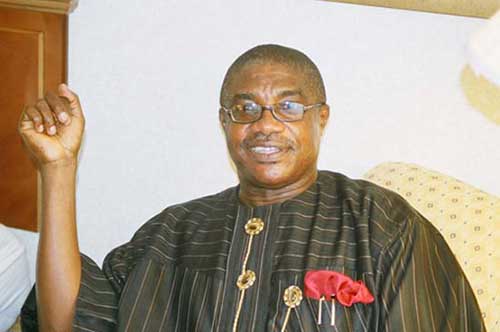By Oscar Kambona
Senator Mao Ohuabunwa has urged the federal government to reevaluate its approach on palliatives if it wants the lockdown to achieve the desired purpose of keeping the people in-doors in the COVID-19 management.
“If we are going to continue then we must look for ways to ameliorate the consequence, look at palliatives and ensure it goes round to cushion the effect of the lockdown” he advised.
He said that there would not be any satisfaction until Nigerians see the end of the pandemic, just as he suggested that there was need for rapid testing, where within 3-5 minutes the result is known.
Ohuabunwa, who represented Abia North in the upper chambers, said that the fight required proactive response.
According to him, “Yes, lockdown is good but the issue is that did you take care of the peculiarities of Nigeria’s economy and our people?
“Most Nigerians are daily paid workers and if you keep them in-house how do they survive?
“Daily paid is not only the unskilled, what about people like taxi-drivers, etc, it is based on what they get on a daily basis they feed their families. So we need to consider all that and I believe that if we have opened the lockdown fine but if we are going to continue then we must look for ways to ameliorate the consequence, look at palliatives in other to cushion the effect of the lockdown.
“We thank God we were able to put NCDC with a legal frame which was during my tenure as the chairman, Senate Committee on Primary Healthcare and communicable diseases, we are able to put the legal base that gave them the latitude to do the much they are doing, even though they have not really started implementing what the law gave them the power to do.
“You can see even the laboratories are being set up on a fire brigade approach which is not correct. These Labs are supposed to have been well set up, prior to this period, any way it came and we are learning on the job so to say, we expect them to do more especially in the area of testing because if you wait only for the molecular test it will not be enough.”
On the lessons learnt, he said, “We have learned so many lessons. The first one is that we now have to look inwards, especially as regards to our healthcare delivery system. We have to institute a good healthcare system in this country, build first-class centres if possible in the 6 geo-political zones of this country, 3 major reference hospitals, begin to equip our primary healthcare centres and make them functional, both in terms of curative, screening and laboratory analysis, then remunerate our health workers well.
“We have also learned that we need to be proactive in whatever that we are doing-especially health-wise. We have learned now that health is wealth because health is involved; the entire economy is down now. This means, its health first before any other thing”.















